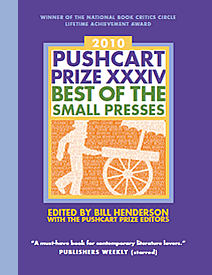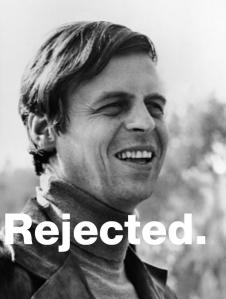 Meg Pokrass: Okla-can you tell us about your “unusual” path to becoming a poet and writer? Mine was an early life in theater, and I love to learn how people find their eventual thing. And in your case, things! Clearly, you wear many creative hats…
Meg Pokrass: Okla-can you tell us about your “unusual” path to becoming a poet and writer? Mine was an early life in theater, and I love to learn how people find their eventual thing. And in your case, things! Clearly, you wear many creative hats…
Okla Elliott: It’s hard to trace these sorts of developments, to decide which facts are pertinent. Should I count the adventure story I wrote, when I was eight years old, about a purple jelly bean, in which I only named the jelly bean as purple at the first introduction and used a purple colored pencil to write “jelly bean” each instance after that? Were the silly and sexually naive limericks I composed to make my friends laugh when I was in middle school the first poems in my “career” as a poet? A sizable part of me thinks these things do count, and so that means I can say I was a poet and writer even before I had any idea what that meant. Actually, my ignorance of how to do things might have been the primary guide on my path to where I am today.
As a member of the first generation of my family to graduate high school and enter college, the possibility of focusing on the arts, philosophy, etc as any sort of lifestyle was unthinkable-or at least for me it was. In high school, I read everything I could: Stephen King, Dostoyevsky, Kurt Vonnegut, fantasy novels, encyclopedia sets, physics books, books on Buddhism, a lawnmower repair manual I remember quite vividly, and so on. For my fifteenth birthday, my sister (who was a math major in college) took me to a bookstore and allowed me to pick out any two books I wanted, and though now I think it is funny, at the time I saw nothing odd in selecting an introduction to thermodynamics and a fantasy novel titled Kaz the Minotaur.
I was considered the math and science guy, and I loved those subjects, just as I loved literature and philosophy. I always assumed I’d go on to be a physicist or engineer even as my friends and I listened to Leonard Cohen and discussed the lyrics like a secret map to the human heart.
In college I studied physics and computer programming at first, taking foreign language classes and philosophy classes on the side. To make a long story short, I slowly realized I could make a life of philosophy, literature, and languages, so I slowly switched over and ended up with a dual degree in philosophy and German, with minors in French and religious studies. I’d read most of Nabokov on my own my freshman and sophomore years as well as a fair amount of Goethe, Robert Penn Warren, and Voltaire. In many ways, these writers are still very much my models. All wrote in every genre; Voltaire was as important a political thinker as creative writer; Nabokov was a scientist who discovered a new species of moth; Goethe was a translator, a scientist, a statesman, and a creative writer in every genre. I think it was also this mix of writers that gave me the idea that the way to become a writer was to travel the world and experience/learn all I could, which led me to studying in Germany for a year and Poland for a semester in undergrad, as well as traveling all over Europe. More recently this notion has sent me on one-month learning “safaris” in Montreal and Guadalajara, Mexico.
I hate the idea of specialization, especially in one sub-field of writing. MFAs, which have their uses, have also given people this false notion that the genres are all distinct and a person is a “poet” or “fiction writer” or whatever. This is a relatively new notion, and one I attribute to MFAs’ institutional organization habits. Hemingway wrote poetry, fiction, nonfiction, and reportage. Chekhov wrote fiction, drama, and nonfiction-and was a doctor, for crying out loud. And the list of great writers who work or worked in multiple (or all) genres goes on and on: Diderot, Hardy, Brecht, Updike, Oates, Vollmann, etc, etc, etc.
In my view, 99% of the DNA for good literature of any sort is about the same-avoid clichés, be intellectually and emotionally honest, use lively language, etc.
Ohio State University, where I got my MFA, is a bit more enlightened on the subject in that it encourages students who specialize in one genre to take classes in others. I took workshops in every genre multiple times while there, and that feature of the program was one of my deciding factors for attending it.
And so, this is the path I have taken. I follow my interests, no matter where they lead me. If I want to think with metered verse one day, that is how I think that day, and if I want to think with Heideggerian philosophy another, then so be it; if I want to think in traditional narrative, I do, experimental narrative, I do; and if I want to do all of it at once and another thing besides, such as the memory of working in a tobacco field in rural Kentucky as a boy, then that is fine as well. We live once and will die before we’ve experienced even a fraction of the amazing shit out there in the world. Why should we cut ourselves off from so much of it, thus handicapping ourselves in an already impossible endeavor of understanding ourselves and the world?
You asked about my “unusual” path to and approach with writing. I would simply say that such a multi-genre and interdisciplinary approach has not always seemed unusual and that it ought not today. In fact, I predict that due to the way jobs in the humanities are going, people who want good jobs will have to wear a few hats. It was the way of writers in the past, and it will be again, at least for a sizable subset of us.
MP: Can you talk about how your work in translation, trauma studies, and Theory affect your creative world?
OE: I touched on this in my perhaps overly long first answer. I think all the various fields I work in deepen the others. My translation work has gotten me into the shapes and feels of other writers’ work, thus allowing me to play the mimic a bit and learn their tools for my own work, and my own work allows me the tools to actually approach theirs in the first place. My work with trauma studies affords me an understanding of the psycholinguistic facts about processing trauma, so when I write creatively on the subject, I can faithfully recreate it. Cultural theory makes me question all my assumptions about life and art, publishing media, and so on. This helps me keep myself from merely following a safe and thoughtless path. Slovenian philosopher and cultural theorist, Slavoj Žižek, has neatly extracted one line from Marx’s Das Kapital to describe ideology: “They do not know they are doing it, but they are doing it.” Staying critical (in the neutral philosophical sense of that word) prevents one from falling victim at every turn to ideology and thus to safe thinking as usual, which I find anathema to real artistic production.
There are weird (and I daresay idiotic) turf wars between scholars and writers. Scholars somehow look down on creative writing types as not doing real work (unless they win a Pulitzer, or preferably won one 20 years ago and are now dead), while creative writing types generally treat their scholarly classes as wastes of time and boring and even, I’ve seen at the three institutions I’ve witnessed MFA students over the years, as somehow beneath them. Both sides of this silly turf war baffle me. How can producing literature reduce my ability to understand it? How can carefully reading literature and surrounding texts then seriously thinking about these things hurt my ability to produce a poem? This is a classic example of infighting among a group (i.e., those who like the arts) that should be in solidarity against a larger group (i.e., those who want to cut funding to the arts).
MP: Please talk about New American Press and Mayday magazine, and, if you will your new job as Managing Editor for As It Ought To Be.
OE: David Bowen and I started up New American Press seven years ago, when we were living in Greensboro, NC, where he was doing his MFA, and I was doing my comparative MA in economics and political science. We ended up living together and becoming fast friends. We wanted to write our own work, but we also wanted to contribute to the community of literature while, let’s be honest, imposing our tastes on it a bit. So we founded New American Press and began doing chapbooks. And over the years it has grown to doing full-length books as well as chapbooks, and in 2009, we launched Mayday, which is a hybrid online/print journal. Our publishing model for the journal is an attempt to navigate the contemporary landscape. It is impossible to ignore the utility of online publishing, but most writers and readers still enjoy a print book, so we will be doing anthologies every other year that include “best of” previous issues and longer works we feel would be annoying to read online. We definitely publish the sorts of things you find in any journal, but we also want to focus a bit more on translation, travel writing, and literature/commentary that acknowledges there are other parts of the world outside the US. We live in a global society now, and since the US’s policies affect so much of the world, it strikes me that it is about time we start taking notice of that world.
As for As It Ought To Be, I started that site up with Matt Gonzalez, a lawyer-activist in San Francisco who has held elected office as a Green Party member. This is where I give attention to my more political interests. The site has about a dozen regular contributors and we try to post a piece every day, ranging from articles on food policy to poetry to voting reform to book reviews. Matt and I have shared responsibility for the site, with him being managing editor for the past year. Now I’m up to bat for a year. I predict I will pass the hat on in a year’s time as well. Matt still writes for the site and solicits material, and so on, and I will do the same once I step down. As a side note, we are one year old this month, and we’ve received over 110,000 total hits, with the daily number growing constantly. It is my hope that in another year we’ll have doubled that annual readership and doubled our number of regular contributors.
I guess as a final note on editing, I have to say that while it takes tons of time, and wading through slush piles can be tedious, I love nothing more than publishing a young talented writer alongside a Harvard professor, love nothing more than having published the first English language translation of a play by Abdellatif Laâbi, who spent ten years in a Moroccan prison for what his government called “crimes of opinion.” My own writing matters more to me as a rule, but somehow publishing Laâbi’s play mattered more than having a few poems of mine appear in a journal where maybe twenty to thirty people might read them.
MP: Do you mentor? Have you had a mentor/mentors? What is the importance of this concept to you?
OE: I mentioned having done my MFA at OSU. I still imagine Lee K Abbott and Erin McGraw as editors when I write fiction. The same goes for Lee Martin in regard to nonfiction. I took both fiction and nonfiction with him, but my particular weaknesses as an essayist were perfectly suited to his strengths as a teacher. In fact, every essay I ever workshopped with him has been published. I often joke I need to audit a Lee Martin nonfiction class once every year or two if I hope to have any luck as an essayist. But the faculty member at OSU that most felt like a mentor was Andrew Hudgins, who is easily one of the best poets (and essayists) this country has, as well as being a great teacher. He’s tough as a teacher, so some students weren’t as welcoming of his instruction, but I can say that both in terms of literature as an art and as a profession, and all the gray areas in between, I can’t imagine a better teacher.
As for my own mentoring, I enjoy working with students and helping them go on to graduate school or publish, but I am a bit young to be mentoring anyone. I’ve only had one real teaching job and that for only one year. Right now, I don’t teach at all, since I am on a 3-year research fellowship at U of IL, but I can’t wait to get back to teaching. I absolutely love teaching and mentoring. Some people see it as necessary evil so they can write or whatever, but I love it, even teaching composition. I’m serious. I’ve never taught a class I didn’t love.
MP: What authors are you currently fascinated by? What books sit on your nightstand?
OE: I have my oldies but goodies: William T Vollmann, David Foster Wallace, Aleksandr Solzhenitsyn, Bertolt Brecht, Albert Goldbarth, and Margaret Atwood. I re-read them constantly. But more recently I have read Jean-Paul Sartre’s The Age of Reason, which is just brilliant, a perfect novel in many ways. I have also fallen in love with the work of Jorge Volpi, a Mexican author I recently interviewed and who is among the best writers alive today in any language. I also have been reading Slavoj Žižek books over the past two years like it’s my damn job. Michel Foucault’s work, while sloppy in places, is very readable and truly groundbreaking. I find I read less fiction and poetry as the years go by, to be honest, and more history, cultural theory, psycholinguistics, cognitive science, and so on. This is in part a function of my current research at U of IL, but also a function of feeling a diminishing return on time invested in reading short stories and poetry.
MP: What is new in your creative world?
OE: I am working, with co-author Raul Clement, on Joshua City-a po-mo, sci-fi Brechtian novel replete with lepers, revolutionaries, nearly deified trains, and Siamese triplets that can see the future (if in fact they exist at all and are not the hallucination of a tyrannical Mayor Adams). An excerpt of the novel was included in an anthology, Surreal South 2009 (eds. Pinckney and Laura Benedict), out from Press 53. I am also working on various short stories, poems, translations, and scholarly articles.
MP: Will you give us a short or long booklist?
OE: Sure. Here goes, at random.
For They Know Not What They Do, by Slavoj Žižek
The Man Without Qualities, by Robert Musil
Cosmos, by Witold Gombrowicz
Season of Ash, by Jorge Volpi
American Rendering: New and Selected Poems, by Andrew Hudgins
All Things, All at Once, by Lee K Abbott
Cancer Ward, by Aleksandr Solzhenitsyn
Rising Up and Rising Down, by William T Vollmann
Selected Poems, Margaret Atwood
Fox Girl, by Nora Okja Keller
It Is Time, Lord, by Fred Chappell
The Holy Book of the Beard, by Duff Brenna

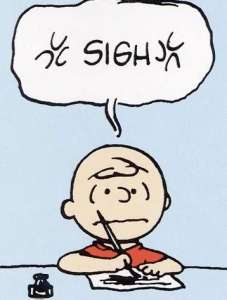 Did discussion of
Did discussion of 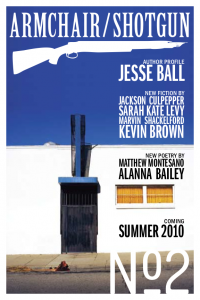
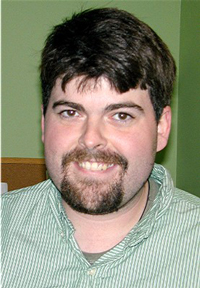 CL Bledsoe
CL Bledsoe
